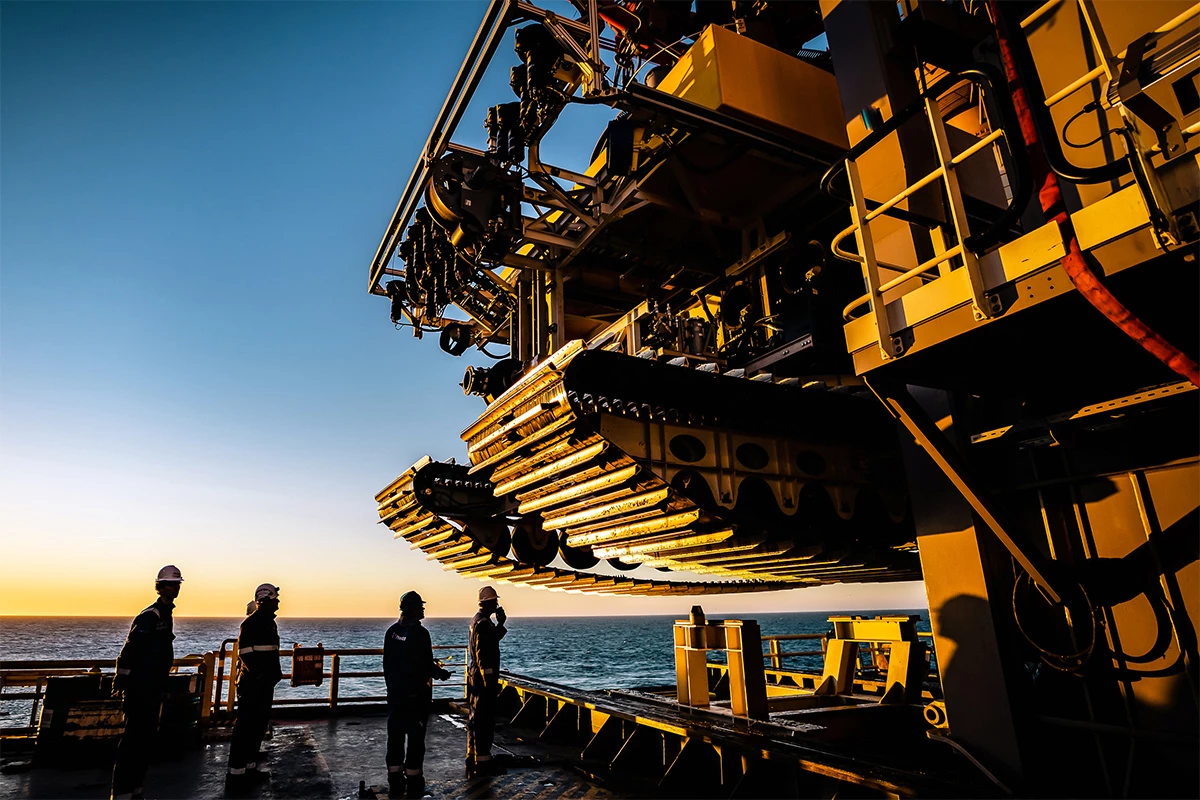Deep sea mining has been off limits thus far, both because it's awfully hard, and because governments haven't yet firmed up regulations around extracting minerals offshore. That might soon change, as an ambitious company is moving steadily to secure permission to begin operations with the Trump administration's blessing – perhaps sooner than it should.
The Metals Company (TMC) is a Canadian firm that's been evaluating the possibilities of mining international seabeds for polymetallic nodules (potato-sized mineral deposits containing nickel, copper, cobalt, and manganese lying unattached on the sea floor) since 2011. It was first sponsored by the island nation of Nauru as it secured ocean exploratory contracts all those years ago.
TMC's position is that we need more battery-grade minerals to transition away from fossil fuels and reduce emissions, and that the abundant resources available on the ocean floor can help get us there.

How does it work?
TMC and other contracted companies are currently researching the availability of these nodules and methods to gather them from the high seas. For its part, TMC intends to have large vessels out at sea deploying collector vehicles down to abyssal depths of 2.5-3.75 miles (4-6 km) in the Clarion Clipperton Zone in the Pacific Ocean.
These collectors will roll across the ocean floor, picking up the loose nodules and shooting them up to the main vessel through pipes using compressed air. They'll then be filtered and shipped back to shore, where the nodules will be processed in a plant with furnaces to heat and help separate the contained minerals into different products for use in manufacturing batteries. The video below shows what that will look like.
The company says that it plans to carry out its operations with minimal environmental disturbance, and that its impacts on the underwater ecosystem at the depth and location it's chosen will not be significant.
What's the hold-up?
A major challenge for TMC is that the International Seabed Authority (ISA), which was established in the 1980s to define sea mining rules and counts more than 160 countries as members, hasn't yet clarified the way forward for exploiting these resources. The US hasn't ratified the United Nations Convention on the Law of the Sea that enabled the founding of the ISA; as such, it isn't a full member of the group, and doesn't have voting rights within it.
Activists and scientists opposed to current deep sea mining plans point out that such operations could lead to irreversible damage to ocean ecosystems, and that the risks aren't fully clear yet. That's why an international body known as the Deep Sea Conservation Coalition wants a moratorium on deep sea mining until we know what's what.

Meanwhile, TMC announced yesterday that it has "met with officials in the White House and US Congress, and is encouraged by interest in the role deep-sea minerals can play in securing America’s supply chain." It also applied for exploratory licenses and extraction permits from the US Department of Commerce.
Given President Trump's interest in removing environmental protections, it's likely that TMC's applications will go through. That flag off major changes in the global supply of minerals for batteries – as well as the state of our oceans.
The Verge details the timeline leading up to how we got here, as well as environmental concerns flagged by scientists and conservationists. It's worth a read if you want the play-by-play.
Source: The Metals Company




